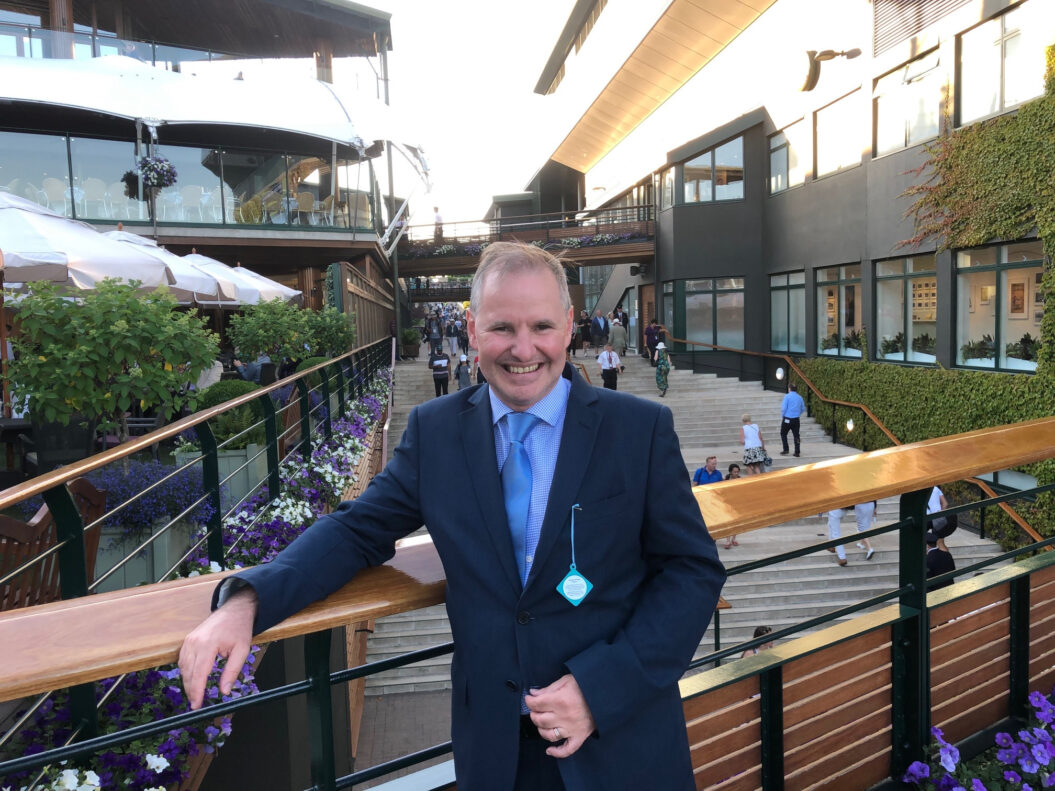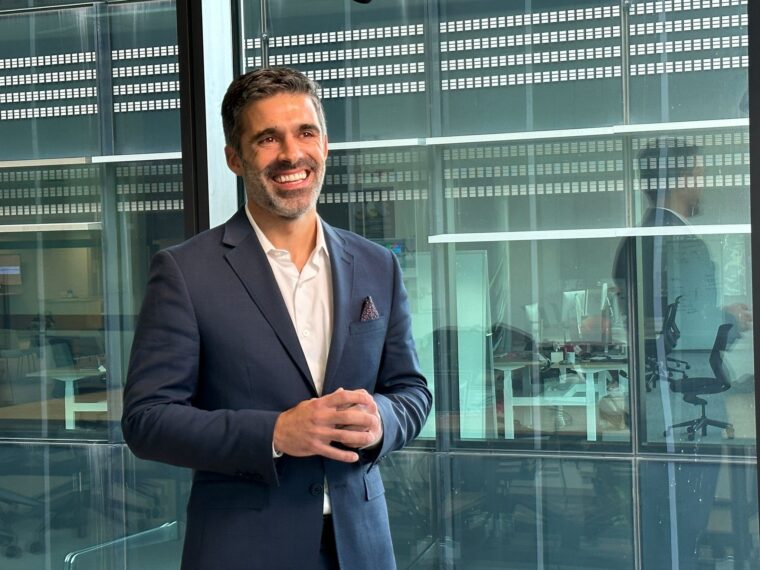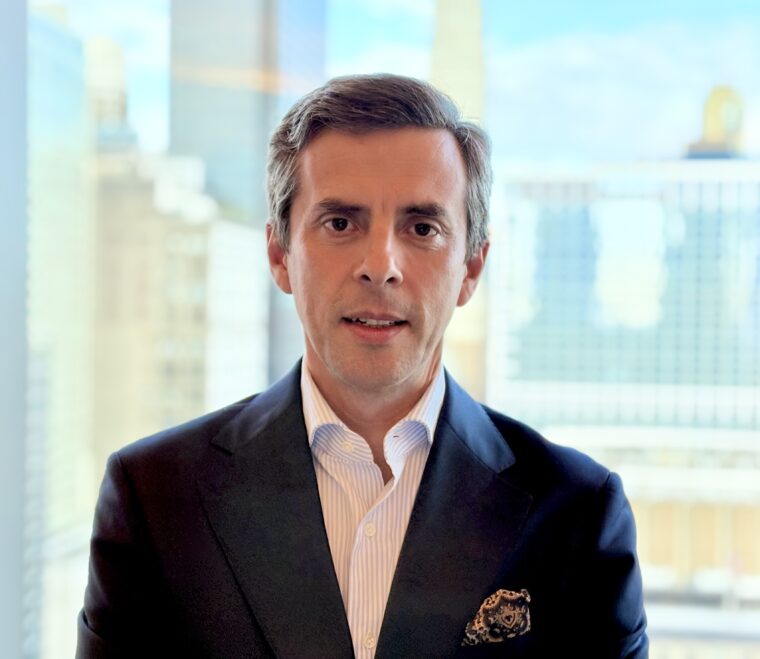As part of the partnership between the Portuguese Diaspora Council and Jornal de Negócios, Miguel Matias, Founder and Ceo at Self Energy Ltd, and Counselor of the United Kingdom Regional Hub, was interviewed by Jornal de Negócios. In the interview, Miguel Matias discussed his professional journey and identified competitive opportunities for Portugal, its economy, companies, and entrepreneurs in general.
1 – WHAT LED YOU TO LEAVE PORTUGAL?
There were several factors. The first was related to the internationalization of the company I started in 2006, Self Energy, after leaving Galp Energia, where I was the Innovation Director. The UK market was attractive (and still is), and we established the company in 2008. Later, in 2014, I decided to move my family and relocate, combining professional opportunities with the timing of my older daughters going to university in the UK, which was part of their goals.
2 – WHAT ADVANTAGES OR DISADVANTAGES HAS THE FACT THAT YOU ARE PORTUGUESE BROUGHT YOU?
Actually, I didn’t feel any particular advantage or disadvantage, because, in general, the UK market values merit highly and does not close doors.
3- WHAT OBSTACLES DID YOU HAVE TO OVERCOME AND HOW DID YOU DO IT?
Brexit was perhaps the greatest obstacle, where I felt that being European might present more challenges than opportunities. More than the fiscal changes or the new requirements for contracts and visas for colleagues entering the country, it was the shift in sentiment—that we might not actually be “welcome,” even while generating wealth for the UK. It is worth noting that in London (where I lived), Brexit was largely rejected and remained a source of great disappointment for the majority of the English population as well. The subsequent negotiations, which dragged on indefinitely, clarified that it would be a scenario in which everyone would lose, and people were seeking the lesser evil.
This sentiment also extended to my children, who had studied in the UK and had even considered establishing their careers there; but they soon decided on other paths. Every challenge brings opportunities, and since the Brexit decision, I never considered closing the company, especially since it would remain an important asset in another market, with access to the Commonwealth and strong support in economic diplomacy.
At the same time, I quickly understood that Portugal could attract some of the businesses, students, or workers who had ventured to the UK, and I began making some investments in Portugal as a certified Business Angel, integrated into a Portuguese club, monitoring the investments remotely. This strategy proved important because it now allows us to support our focus on the Iberian green energy market, which can attract investments not only in renewable and clean tech energy but also in energy-intensive sectors such as data centers, AI, pharmaceutical industries, and more.
4 – WHAT DO YOU MOST ADMIRE ABOUT THE COUNTRY YOU ARE CURRENTLY IN?
Pragmatism, efficiency of services, and simplicity of processes. Especially in London, one of the most cosmopolitan cities in the world, where access to art, culture, performances, sports, and various events is unparalleled, and where the transport system, though expensive, works well enough that owning a car in the city is not necessary at all. On the Tube, you can see people dressed in evening wear heading to the theater or events, while others are in shorts and sweaty T-shirts straight from a gym session.
5 – WHAT DO YOU ADMIRE MOST ABOUT THE COMPANY / ORGANIZATION YOU ARE IN?
Self Energy has successfully reinvented itself over the past years, making decisive contributions to critical areas in the renewable energy sector, such as batteries, energy efficiency, and flexible solar panels with advanced solutions that can be installed on any surface, including stadiums, highways, defense facilities, or agricultural sites. The company has also made significant progress in decentralized production using various technologies and systems, notably based on green hydrogen, industrial solar thermal, and Waste-to-Energy. The company is now resuming its leadership role in Portugal and Spain.
Since 2006, the company has also trained numerous professionals who are now part of some of the largest Portuguese and international companies, including individuals from the UK who later returned to Portugal, and others who used AICEP internships to establish themselves in the UK or Mozambique.
Self Energy’s vision that everyone should start thinking about their own energy—at home, at the company, in the neighborhood, or in the city—in a decentralized and efficient way was very innovative back in 2006 and even faced some criticism. However, nearly 20 years later, industry trends are proving us right, although there is still much to be implemented. Our mission is to make decentralized and efficient energy production the primary source of energy. By producing photovoltaic solar energy on our roof (or on a neighbor’s roof within a renewable energy community), which powers part of the home or business and can even charge an electric vehicle, we are not only reducing fossil energy consumption but also decentralizing its production, making it our own energy—independent of oil shocks or wars.
6 – WHAT RECOMMENDATIONS DO YOU HAVE FOR PORTUGAL, ITS ENTREPRENEURS AND MANAGERS?
Portugal has an opportunity over the next 10–15 years, together with Spain, to make the Iberian Peninsula the “renewable energy powerhouse” of Europe, both in green electricity and renewable gases. Europe needs to re-industrialize, and the Iberian Peninsula could be the ideal location for this, as we will have the cheapest green energy in Europe. However, investments in the grid and in the regulation of grid flexibility services will be necessary to prevent situations like the blackouts from happening again. The country can also learn a lot from the UK in this area, which is about ten years ahead in both regulation and the deployment of gigawatts of batteries to support the grid. My recommendation is to attract industrial investments to Portugal and ensure that taxes, licensing, and laws do not hinder development. We cannot take more than 10 years to start exploring lithium or 50 years to build an airport.
7 – IN WHICH SECTORS OF THE COUNTRY WHERE YOU LIVE CAN PORTUGUESE COMPANIES FIND CUSTOMERS?
The United Kingdom has a commercial tradition with Portugal that was historically closely linked to wine and tourism. These sectors are changing, and the ease with which Portuguese companies communicate in English, the fact that we share the same time zone, and our position as a gateway both to the EU and to Brazil and Africa, create opportunities in almost every sector. It then depends on each company’s willingness to come to the UK to present their products, as there is still a strong appreciation for in-person presence.
8 – IN WHICH SECTORS IN PORTUGAL COULD COMPANIES IN THE COUNTRY WHERE YOU ARE WANT TO INVEST?
They are already investing in renewable energy, agriculture—particularly in wine—tourism and real estate, education and universities, as well as in the arts and culture sector.
9 – WHAT IS THE COMPETITIVE ADVANTAGE OF THE COUNTRY YOU ARE IN THAT COULD BE REPLICATED IN PORTUGAL?
Meritocracy and strong regulation of critical sectors such as education, healthcare, energy, telecommunications, water, and transport. More than whether the service is delivered by the public or private sector, the discussion focuses on the quality of the service provided, and public resources are allocated to schools and hospitals according to the results achieved. We must be able to focus on the service provided and let the market work. Those who fail to deliver quality service or misinform consumers face heavy fines or even the loss of their concession. Companies of all nationalities operate and compete, and only the best survive. The winners are the consumers/users.
10 – ARE YOU THINKING OF RETURNING TO PORTUGAL? WHY?
Yes, I am just starting this process now after completing an important growth project at Naked Energy Ltd, first as Commercial Director and later as Iberian Director. I am consolidating the various investments I have made as a Business Angel in Portugal over the past 15 years and trying to create a significant player in decentralized and efficient energy management. This includes the Clean Tech area, with industrial capacity for producing lightweight and flexible solar panels and lithium batteries in Portugal, as well as the development and management of renewable energy communities, ultra-fast vehicle charging, green hydrogen production and distribution, and promoting solutions for energy recovery from waste and industrial solar thermal hot water production.
In fact, I aim to bring together 25 years of investment and know-how in energy decentralization, which I believe is the future of the sector. The PRR Mobilizing Agendas have been helpful, and at this stage, I am seeking strategic and financial partners to execute this transition, as Portugal needs an M&A process that enables the creation of larger companies capable of competing in global markets.







